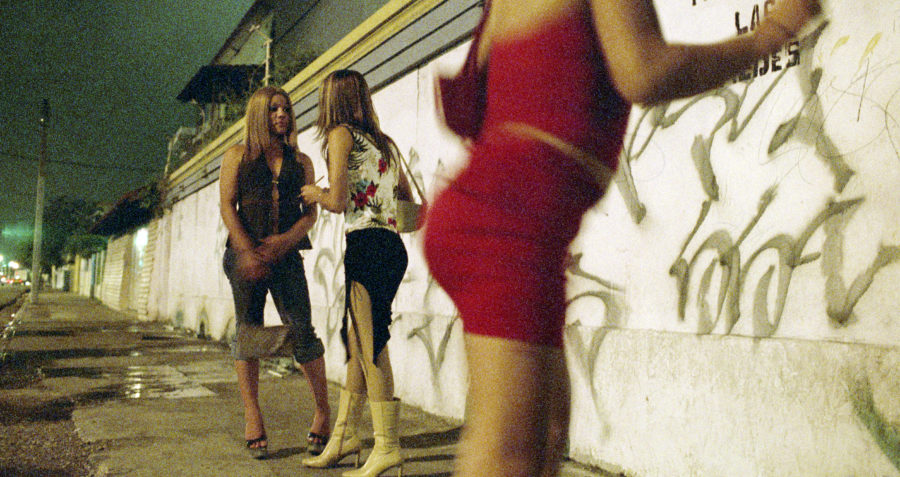Jamaican, transgender Gulley Queen survivor speaks out
 © Frontline AIDS
© Frontline AIDS
As a young transgender woman, SashaBerry had a highly increased risk of acquiring HIV, which is what happened to her at the age of 18.
“When I left high school I started to identify as the opposite gender,” says SashaBerry. “It was rough. You get to know your choices and you cannot live how you want. Instead you have to live in the closet.”
Transgender women are 49 times more likely to be living with HIV than all adults of reproductive age (UNAIDS). The HIV risk for transgender people is related to sexual behaviours, especially unprotected anal sex, but stigma and discrimination make young transgender people especially vulnerable to HIV.
In Jamaica, where SashaBerry lives, as in countries all around the world, transgender people face horrific human rights abuses. They are often rejected by their families and denied health-care services, including access to HIV testing, counselling and treatment.
Going underground
“It is really risky to come out,” says SashaBerry. “I eventually gained the confidence to do it, but then my father and stepmother kicked me out. I remember it was raining that day. When I became homeless I had to work the road, in my gender as a woman, and sell my body so that I could maintain my existence, feeding and clothing myself.”
By the age of 19, SashaBerry ended up living with Kingston’s notorious ‘Gulley Queens’ – so called because the group of young transgender women live in an underground storm drain.
“Living there was very risky,” says SashaBerry. “Sometimes there were police raids, they would use pepper spray and beat us. They also took us away and left us in areas we didn’t know for other men to beat us up.”
One time at age 20, SashaBerry was in a car with a client when she started to sense danger. As they got out the car, a group of men were waiting for her.
“They questioned if I was a man or woman, and they started to grope me,” says SashaBerry. “Then they said let’s take her away and kill her. We were in the ice factory in downtown Kingston and I was viciously attacked receiving four stabs in my back, my head and my side, which punctured my lung. I was admitted to hospital and got a serious infection in my lung. This happened in December and I spent Christmas in hospital.”
Being offered safe haven
A couple of months ago SashaBerry was offered a place in a house run by the Larry Chang Foundation. At the age of 25, and after seven hard years living mostly underground, this placement for 12 months is an opportunity for SashaBerry to look after her health and think about the options for her future. While living in the gulley, she was not able to access HIV medication, but that is about to change with the support of the Foundation.
SashaBerry says: “Since moving to the house I don’t have to do the things I used to do to survive. I have health and HIV check-ups and can receive medical help and regularly take my medication. I want to train as a nail technician and one day hope to be able to go to school to study. It is still not safe for me to leave the house but I hope that in the future I can live openly and freely as the woman I am.”
The Larry Chang Foundation, which is supported by the International HIV/AIDS Alliance’s Rapid Response Fund, is currently providing 30 LGBT people with safe housing.
Karleen Jackson, CEO for the Foundation, says: “We believe stable housing plays a crucial role to the ongoing health and well-being of people living with HIV. It also helps our clients reduce their likelihood of unsafe sex and other high-risk behaviours, and supports them to maintain their HIV treatment.”
Human rights abuses of LGBT people
Unless governments, including Jamaica’s, make a concerted effort to end the human rights abuses that affect those most at risk of HIV, it will not be possible to achieve UNAIDS’ target to end AIDS by 2030.
Yet despite repeated attempts by human rights activists to get Jamaica’s ‘sodomy’ law repealed, currently the colonial-era law still criminalises consensual same-sex sexual relations. And considering that transgender women do not have their preferred gender legally recognised, they are also at risk of the punishment of ten years’ imprisonment.
If SashaBerry was given a chance to talk to those in power, she would say: “Give us a chance. Give us the right to be who we are.”
The question is: will anyone listen?
The Rapid Response Fund is managed by Frontline AIDS and funded by the Elton John AIDS Foundation. It responds to situations where HIV services provided by community organisations led by LGBT people are at risk due to stigma, discrimination and violence.
This article was written as the International HIV/AIDS Alliance, before we changed our name to Frontline AIDS.
Tags
JamaicaLGBTRapid Response Fund



